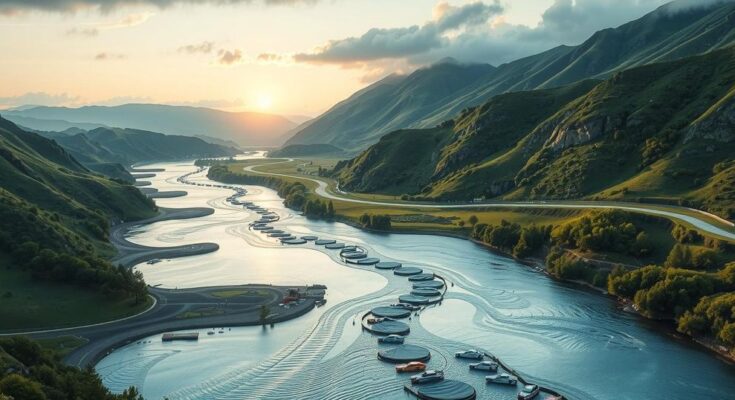Formula 1 is reviewing the implications of the conflict in the Democratic Republic of Congo concerning Rwanda’s bid to host a Grand Prix. DRC officials have raised concerns about Rwanda’s suitability to represent Africa in motorsport, especially in light of the violence in the region. Senior F1 representatives indicated that negotiations with Rwanda may be adversely affected by these developments as the sport assesses future hosting sites.
Formula 1 is currently observing the ongoing conflict in the Democratic Republic of Congo (DRC) amid concerns regarding Rwanda’s bid to host a Grand Prix. This decision follows a letter from DRC’s Minister of Foreign Affairs, Therese Kayikwamba Wagner, who raised issues about Rwanda’s suitability as a host nation and its representation of Africa. She urged F1 to reconsider and halt negotiations with Rwanda for the proposed race.
Both Rwanda and South Africa are competing to host a Grand Prix in 2027, which would mark the first Formula 1 event on the continent since 1993. However, as per senior sources, the chances of a race in Rwanda have diminished due to various factors, including the escalating conflict in the DRC. An F1 spokesperson confirmed that they evaluate all potential hosting requests thoroughly, focusing on the sport’s best interests and overarching values.
In December of the previous year, Rwandan President Paul Kagame announced the country’s bid while attending an F1 governing body ceremony in Kigali. A racing circuit is currently under construction near Bugesera airport, designed by former Benetton driver Alexander Wurz, which aims to align motorsport with sustainability and natural aesthetics. FIA President Mohammed Ben Sulayem remarked that “Africa deserves an F1 event” and suggested Rwanda as the premier location for this initiative.
The pursuit of hosting an F1 event is part of Rwanda’s larger strategy to establish itself as a global sports hub. Nonetheless, this ambition is jeopardized by rising regional tensions, primarily due to the actions of Rwandan-backed M23 rebels who have engaged in conflict with Congolese government forces in South Kivu. M23 claims to advocate for the interests of Congolese Tutsi and other minority groups, facing threats from Hutu rebel factions.
Allegations from United Nations experts suggest that Rwanda not only supports M23 but also benefits from illicit mineral trade, a claim that Rwanda has denied, asserting its focus on securing its borders. In her letter to Formula 1’s CEO, Stefano Domenicali, Kayikwamba Wagner expressed deep concerns over whether F1 wishes to associate its brand with any atrocities linked to Rwanda, questioning the nation’s suitability in representing Africa in global motorsport.
The ongoing conflict has resulted in the seizure of significant territories in eastern DRC, including the city of Goma, with recent UN figures indicating approximately 2,900 fatalities since January. Furthermore, the Rwandan government’s involvement in sponsoring football has faced scrutiny, prompting former DRC captain Youssouf Mulumbu to call upon Paris St-Germain to reconsider its partnership with Visit Rwanda, intending to raise awareness of the humanitarian crisis affecting his homeland.
In conclusion, Formula 1 is actively monitoring the conflict in the Democratic Republic of Congo as it evaluates Rwanda’s bid to stage a Grand Prix. The concerns raised by Congolese officials highlight the potential repercussions of associating F1 with a nation amid unrest. The ongoing violence poses significant challenges not only to Rwanda’s aspirations but also to the broader perception of Africa in the context of global motorsport. Rwanda’s viability as a host remains uncertain amidst escalating tensions and international scrutiny.
Original Source: www.bbc.co.uk




